Facial Extraction Benefits And How To Do It
Say 'goodbye' to skin woes caused by clogged pores with this deep-cleansing practice.
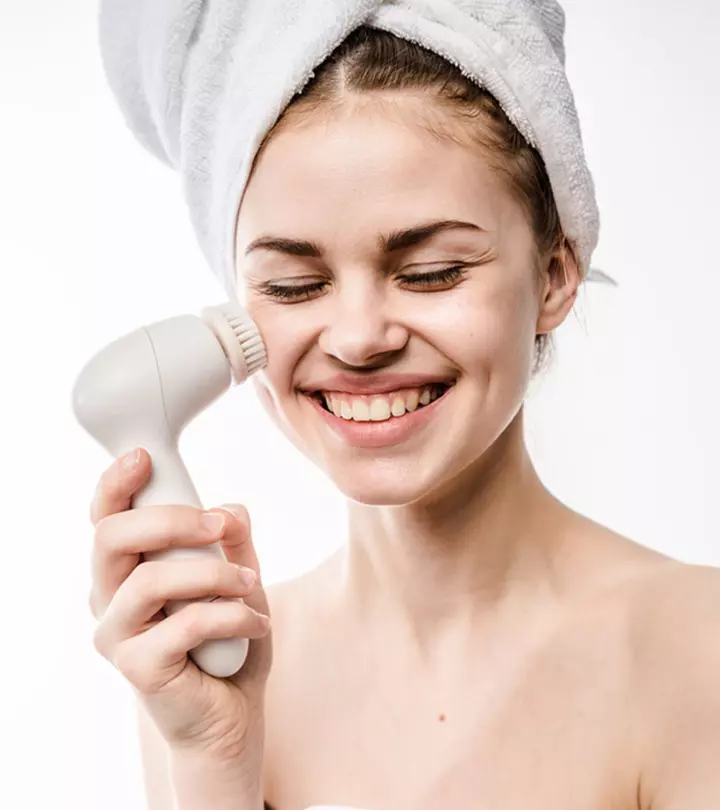
Image: Shutterstock
Skin pores accumulate sebum, dirt, oil, and grime, causing acne, whiteheads, and blackheads. Instead of squeezing them out, you can try facial extraction. The benefits of facial extraction are not limited to decongesting the pores. It can improve the skin texture, help keep it soft, and help your skin absorb skin care products better. Estheticians usually perform facial extraction. They use extraction tools to remove blackheads, comedones, and bumps. This article discusses the benefits of facial extraction and how to do it at home. Keep reading.
In This Article
The Benefits Of Facial Extraction
1. Helps Remove Blackheads
Blackheads are formed when the clogged pores are exposed to air. It can be hard to clear away blackheads with DIY methods or nose strips. Facial extraction can make the process easy and effectively help unclog the pores.
2. Clears Skin Pores
Extracting pores can help clear buildup from the skin pores. Oil and dirt can accumulate daily on your skin, and the lack of proper cleaning can trap them in the pores. Efficient extraction during facials can help clear the dirt, making your skin clear and bright.
3. Prevents Unwanted Breakouts
Squeezing your existing zits, whiteheads, pustules, and papules can aggravate the inflammation. Going to a dermatologist or aesthetician for facial extractions saves your skin from trouble.
4. Boosts Blood Circulation
The gentle massage and stimulation during the facial extraction process relaxes the facial muscles, which may help boost blood circulation. This increased blood flow may help bring more oxygen and essential nutrients to the skin and reduce puffiness, leaving your skin refreshed, radiant, and revitalized.
5. Improves Skin Texture
Clearing excess oil, dirt, and debris from your pores regularly may help reduce rough patches and give clearer and smoother skin. Moreover, the removal of gunk allows for better absorption of skincare products, which will allow you to reap the benefits that these products offer. Further, this process also encourages skin renewal, contributing to a healthier skin texture.
You might be wondering if facial extraction is something that you can do at home. If you are new to the procedure, it is better to visit a professional. If you have the tools at home, you can follow the steps below.
Key Takeaways
- Facial extraction helps unclog pores, remove blackheads, and prevent further breakouts.
- While facial extractions can also be done at home with the use of the right tools and steam, it is best to get it done by a trained esthetician.
- Redness and inflammations are a few of its common side effects which may resolve within a day or a week depending on your skin type and the amount of extraction done.
How To Do Facial Extraction At Home
Start with clean and dirt-free skin. Always use a mild facial cleanser to remove dirt and oil. Follow the steps below:
Step 1: Gather The Extraction Tools
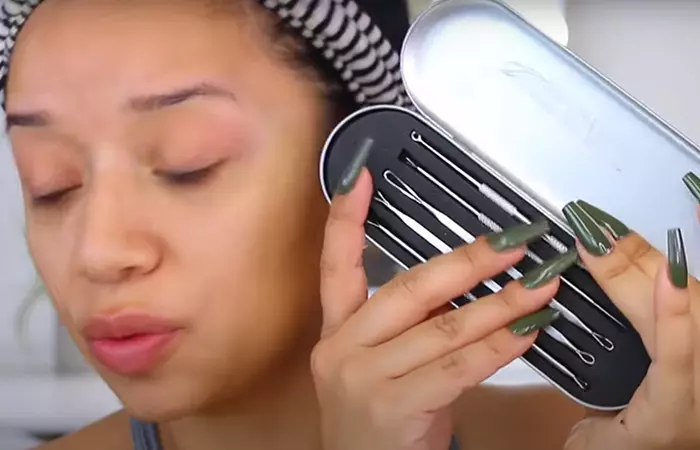
The extraction toolkit is readily available on the market and includes various tools for extracting and clearing blackheads and whiteheads. However, you have to be careful and gentle while handling them.
Step 2: Facial Steaming
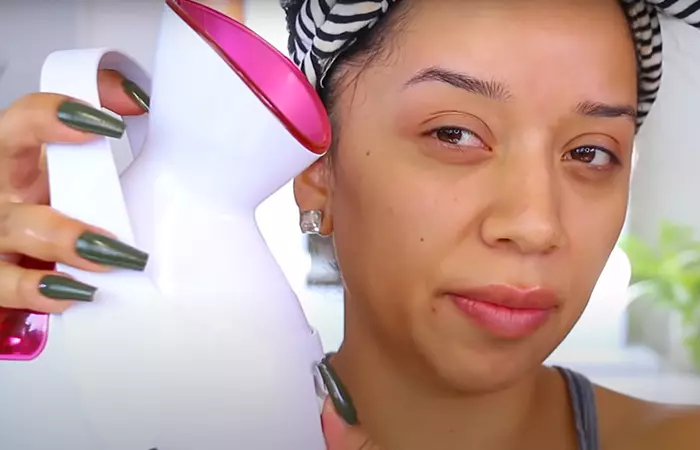
Use a facial steaming machine to steam your face. This helps open up the skin pores, making it easier to extract the whiteheads and blackheads.
If you do not have an automatic steamer, pour hot water in a bowl, hold your face right above it, and at a safe distance, put a towel over the head to prevent the steam from escaping. This is another easy way to steam your face at home.
Step 3: Extract The Blackheads And Whiteheads
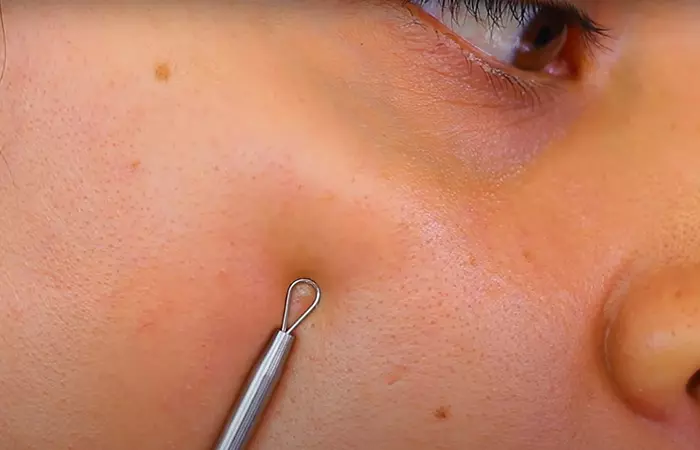
Use the looped tool to extract the whiteheads, zits, and blackheads. Gently press the loop onto the skin and slide it downwards to extract.
After every use, clean the extraction tool with rubbing alcohol to prevent bacterial infection.
For stubborn zits and whiteheads, gently poke their heads with the pointed extraction tool, and extract them with the looped tool.
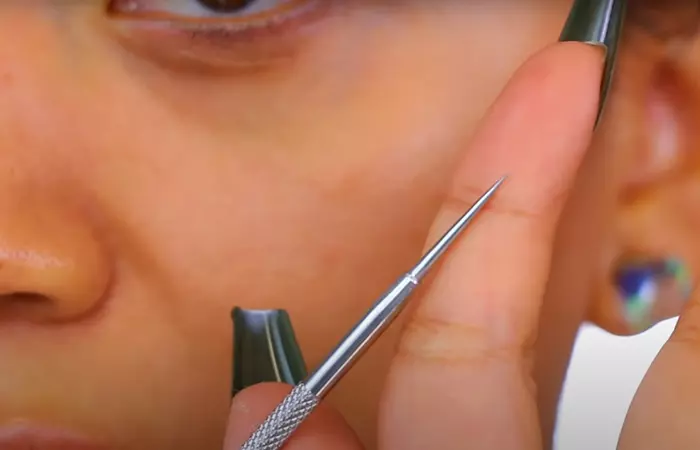
Step 4: Apply The Nose Strip
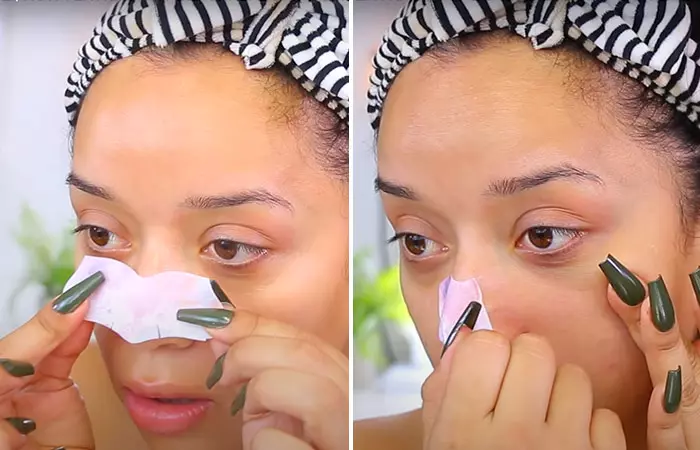
If you still see blackheads and whiteheads on your nose after extraction, apply a nose strip on the wet skin. You may also know about pore strips, which remove blackheads, dirt, and debris from the skin’s pores, especially on your nose, chin, and forehead. After the extraction, steam your face one more time for 5 minutes before applying skin care products.
Step 5: Exfoliate The Skin
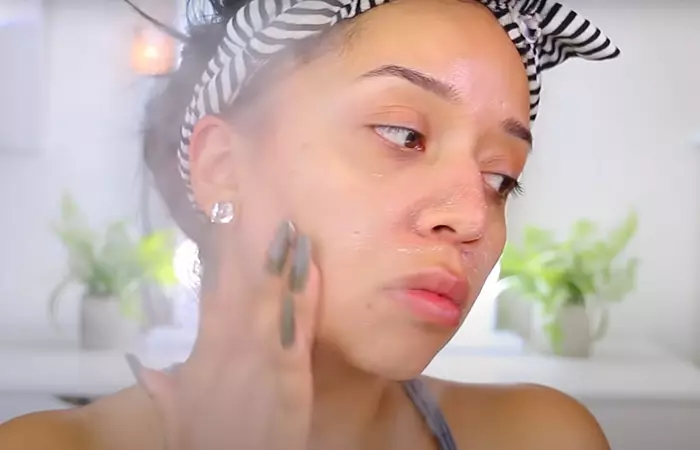
Use a mild chemical exfoliator to clear your skin and then wash it off. You may also wipe your face with a wet towel.
Step 6: Apply Mask And Moisturizer
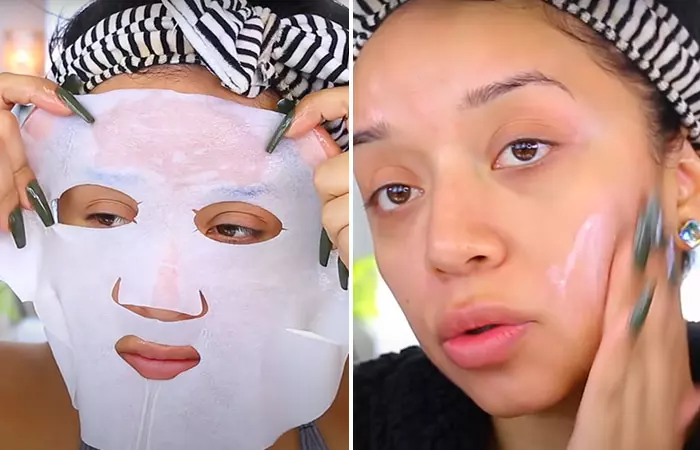
Apply a sheet mask to your face. This helps nourish, soothe, and hydrate the skin. Sheet masks may also help calm post-extraction inflammation and redness. You may use masks with cucumber, aloe vera, or chamomile extracts or that have hyaluronic acid, peptides, ceramides, and collagen in their formula. Finish the routine with a calming and soothing moisturizer.
Check out the complete process right here:
Freshly extracted comedones may appear reddish at first, and your skin may appear inflamed. However, it goes away after a while. If you have tough comedones, it is better to seek professional help. Here are answers to a few questions that you may have.
Are Facial Extractions Painful?
It depends on your pain tolerance levels. Usually, extracting moderate levels of zits, whiteheads, pimples, and blackheads is not painful. However, the squeezes and nudges for extracting tough acne, pimples, and painful zits can cause a bit of discomfort. Here, you can learn about different facials for acne and choose one that suits your skin type. However, if your acne issue is grave, we suggest you consult a dermatologist before going for facial extractions or any type of facials.
Glaiza, a blogger, tried facial extraction and shared her experience in a blog post. She says, “I knew extraction to clean my clogged pores would hurt (at least for me) but I also knew I needed it as I haven’t done it in a long time now, a year even. However, Jet Peel Facial is something I hoped never ended because it’s so relaxing!” While the pore cleaning was painful, she was still appreciative of the experience, stating, “If I were to ask if I’ll undergo this treatment again, I’d definitely say yes. I always wanted to achieve smooth and healthy looking skin anyway (i)”.
How Long Does It Take For Extractions To Heal?
After a facial extraction, your face may appear red and inflamed. The extracted zits and acne may look red and tender. The redness may subside by 24 hours. However, your skin may take a few days or a week to heal completely.
 Quick tip
Quick tipDepending on your skin type and concerns, it can be highly beneficial for you to get extractions. However, the frequency of your facial extractions may determine the efficacy of the results.
How Often Should You Get Facial Extractions?
Do facial extractions not more than once or twice a month, depending on your skin type and condition. The skin pores tend to clog in a few weeks, so you have to clean it regularly. Monthly facial extractions help in skin maintenance.
Note: The facial extraction procedure should be done very gently. Repeated attempts to extract blackheads and whiteheads can lead to post-inflammatory hyperpigmentation, especially in skin of color. Do not attempt facial extraction at home if you have painful pimples, nodules, sensitive skin, or rosacea.
 Quick tip
Quick tipExcess oil, or grime clogs your pores which results in blackheads and acne. To get rid of acne and clear up your skin, you can try facial extractions. Facial extraction benefits your skin by unclogging your pores of grime and removing blackheads. While it is recommended that you visit a dermatologist for this procedure, you can perform facial extractions at home with the right tools and instructions. Your skin may feel tender and red after the procedure and may take a few days to heal completely. Depending on your skin type, do not perform facial extractions more than once or twice a month.
Frequently Asked Questions
Do facial extractions leave scars?
Possibly. Although extractions should not leave acne scars, temporary marks may result due to compression on the skin during extractions.
Do blackheads return after extraction?
Possibly. If your skin produces too much natural oil, it results in blackheads, which may persist unless the cause is addressed.
Discover the transformative experience of total facial extraction at the West End Plastic Surgery, led by Kelly Rose, a skilled medical aesthetician. Click play for a detailed process video from a professional and visible results.
Personal Experience: Source
StyleCraze's articles are interwoven with authentic personal narratives that provide depth and resonance to our content. Below are the sources of the personal accounts referenced in this article.
(i) My Experience with Jet Peel Facial Treatment with Extractionhttps://glimmerofhappiness.wordpress.com/2018/09/06/my-experience-with-jet-peel-facial-treatment-with-extraction/
Read full bio of Dr. Preethi Nagaraj
Read full bio of Ramona Sinha
Read full bio of Eshna Das
Read full bio of Monomita Chakraborty






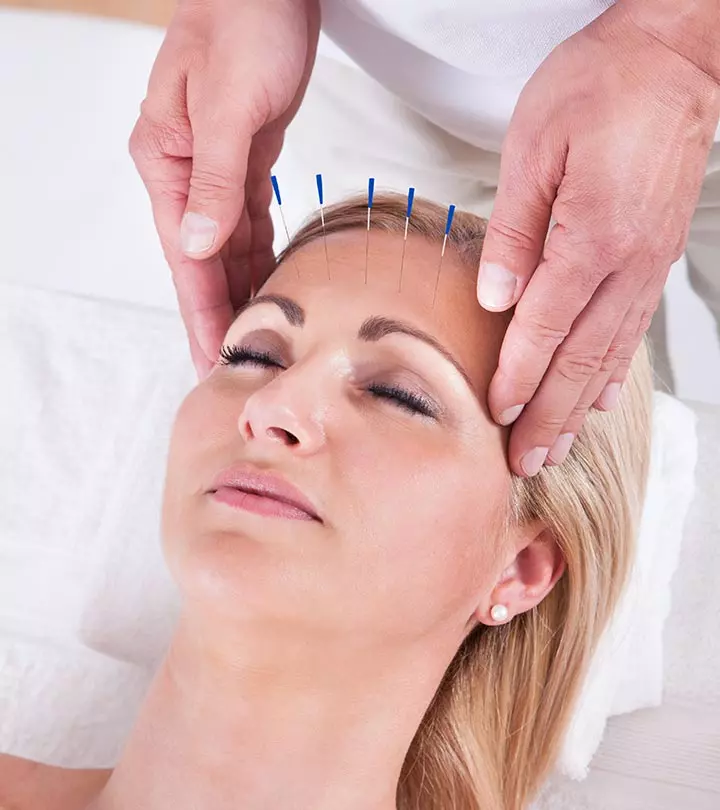
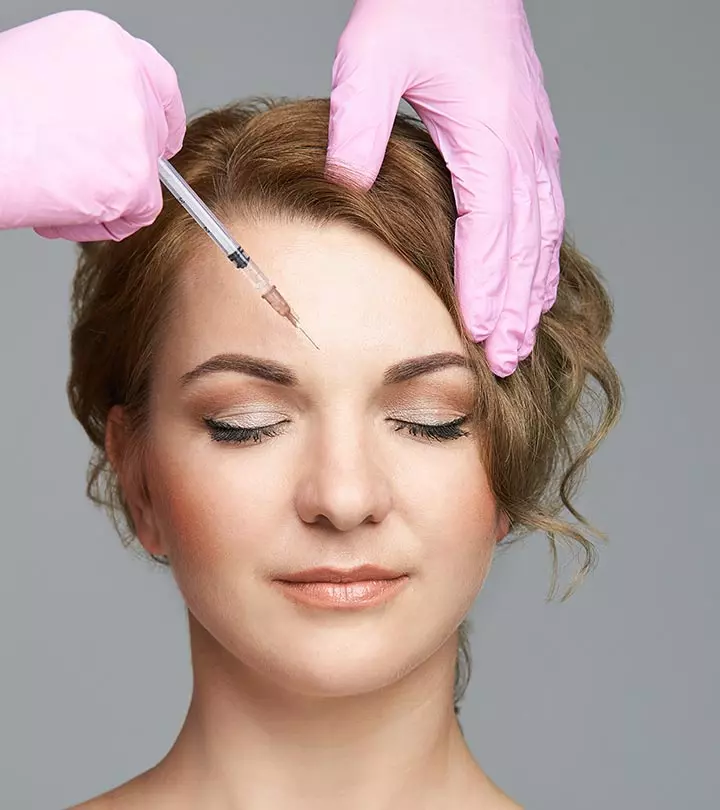
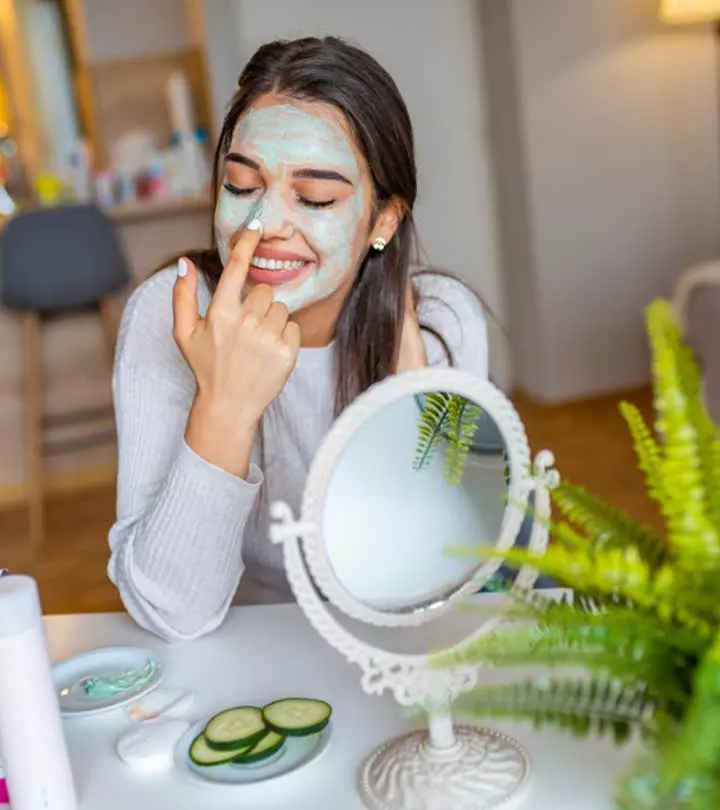
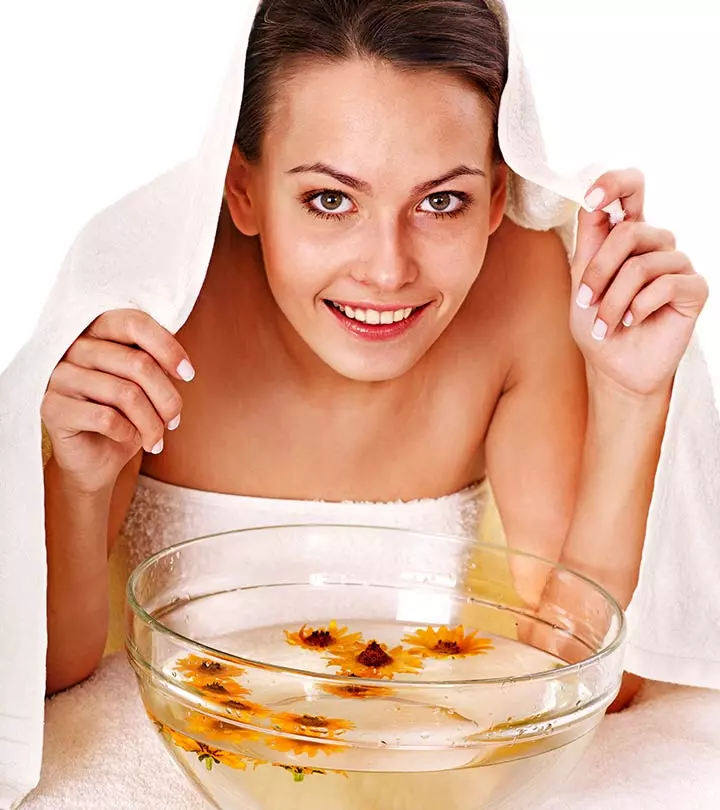
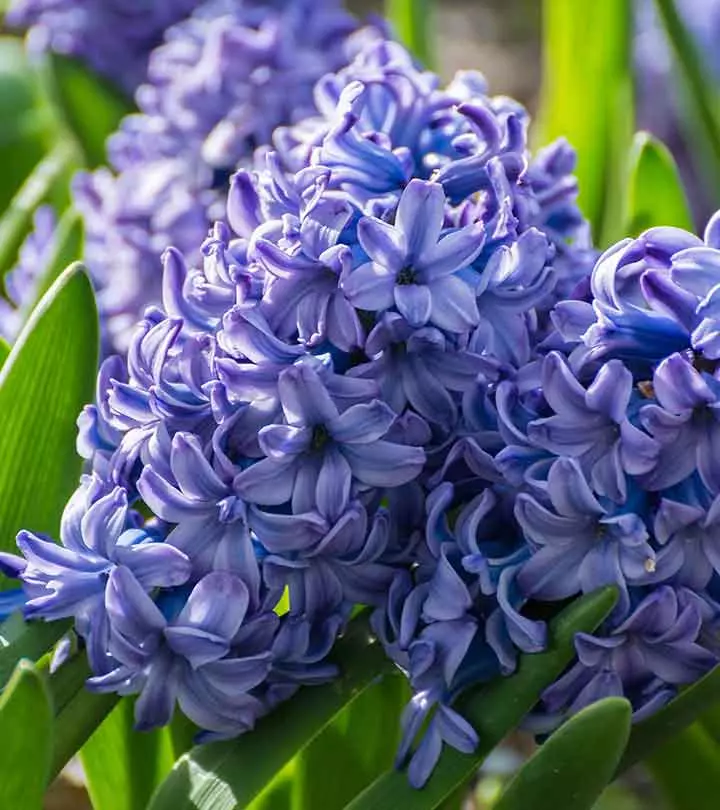
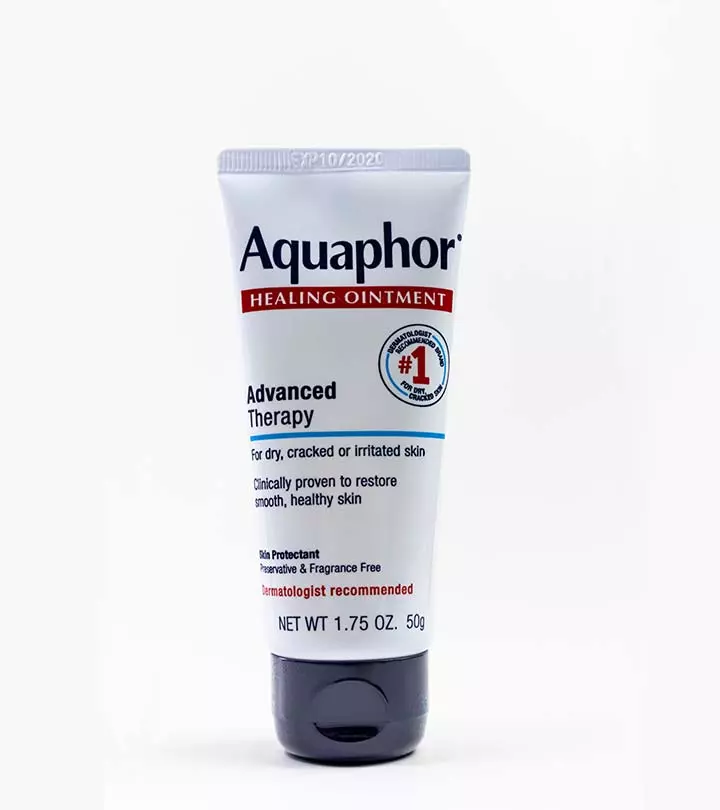
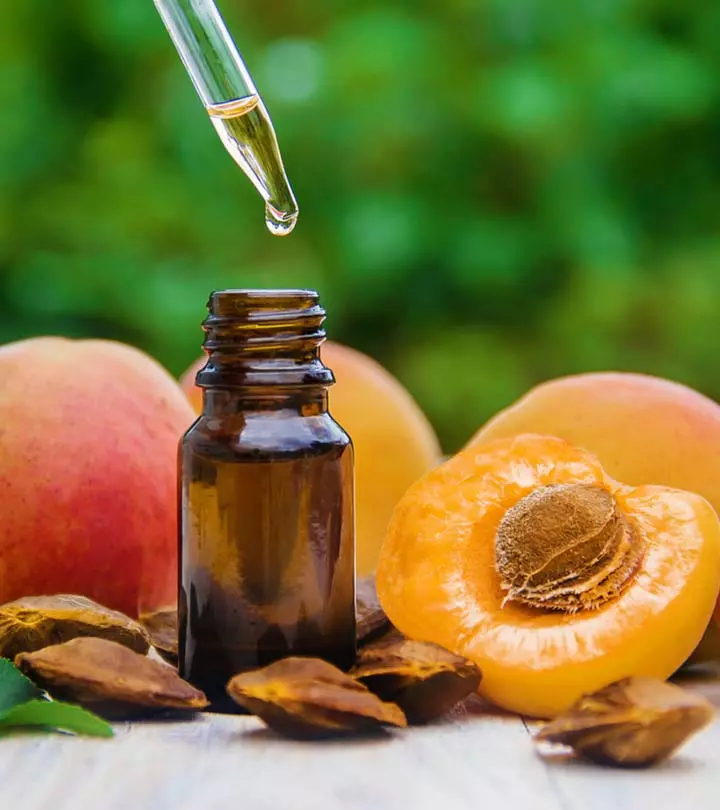
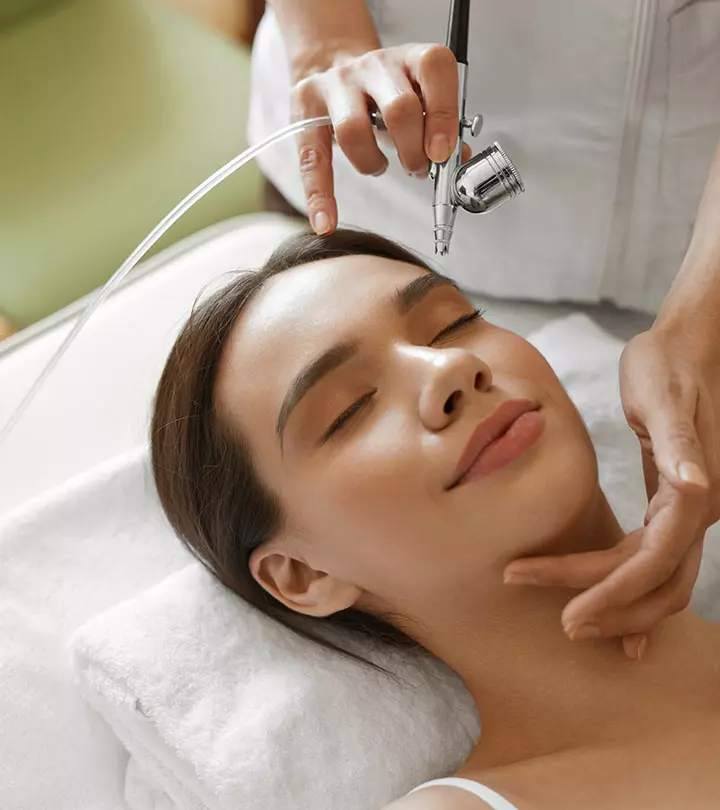
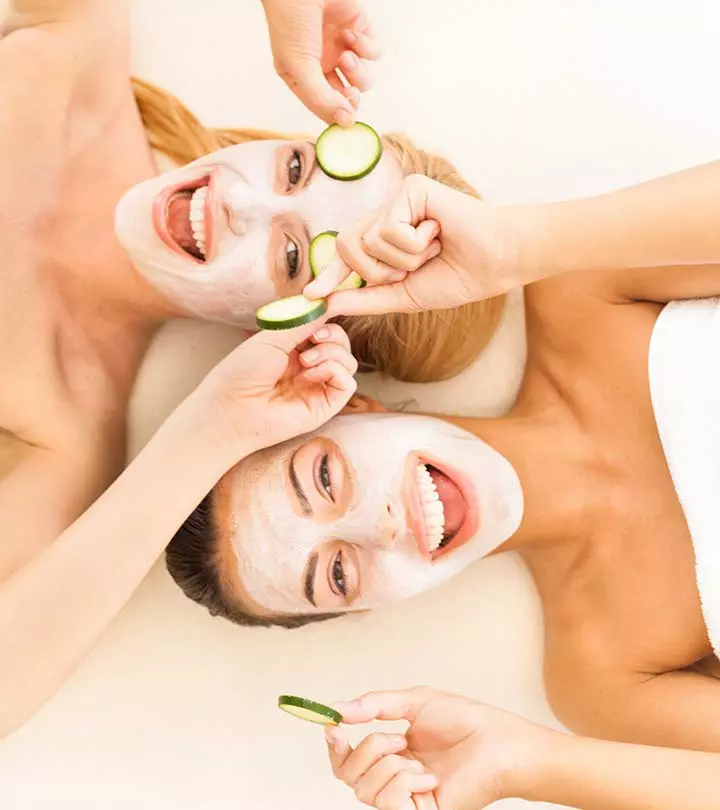
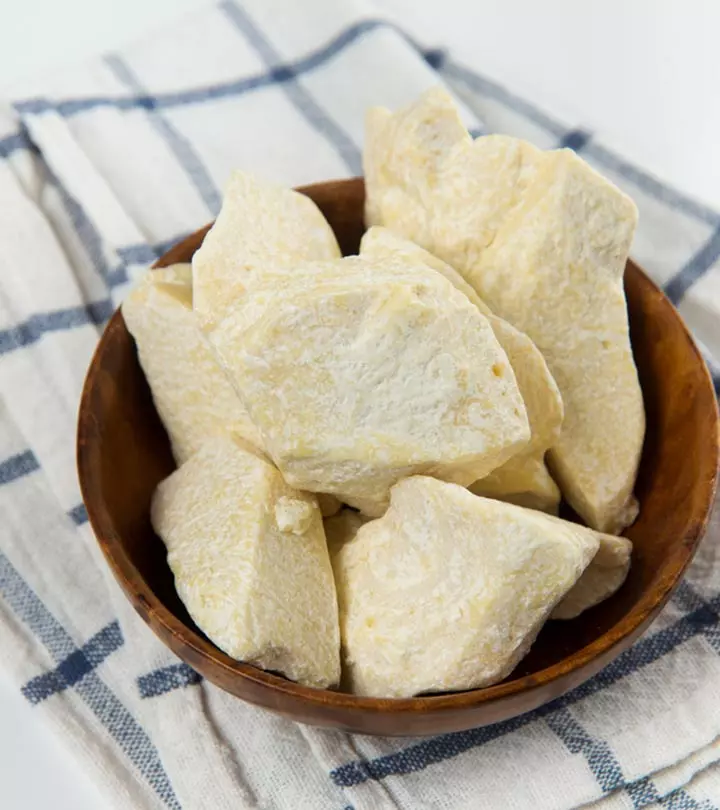


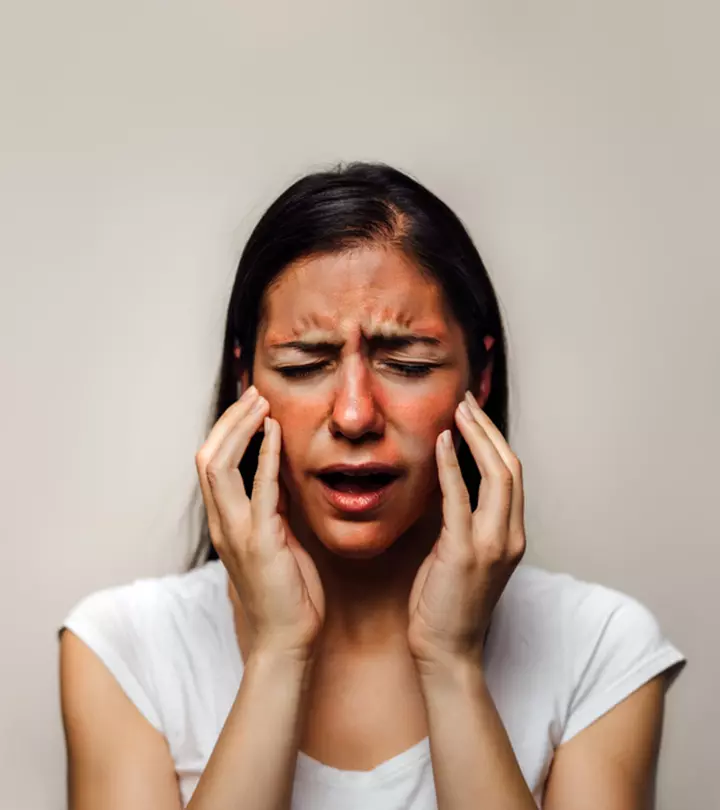
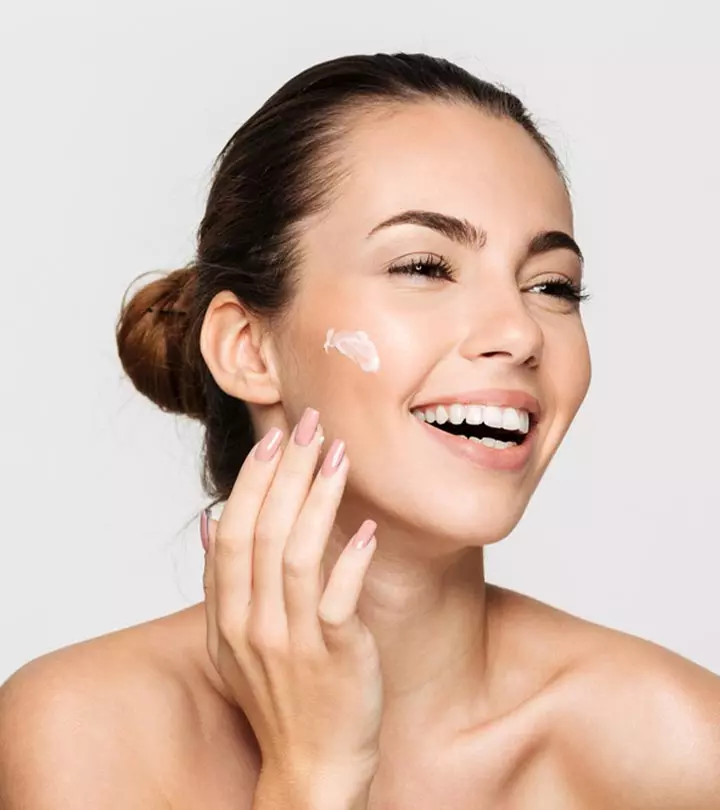
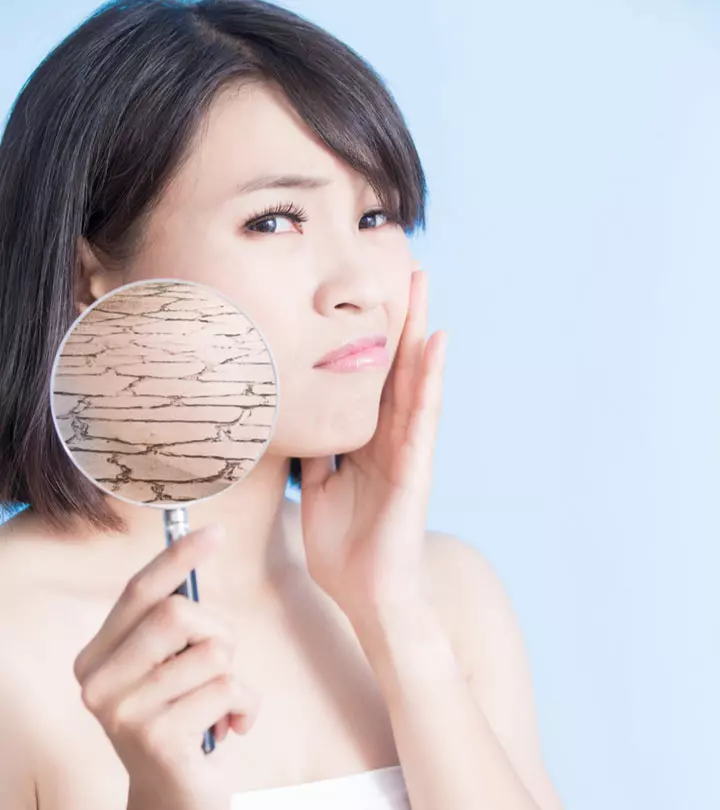
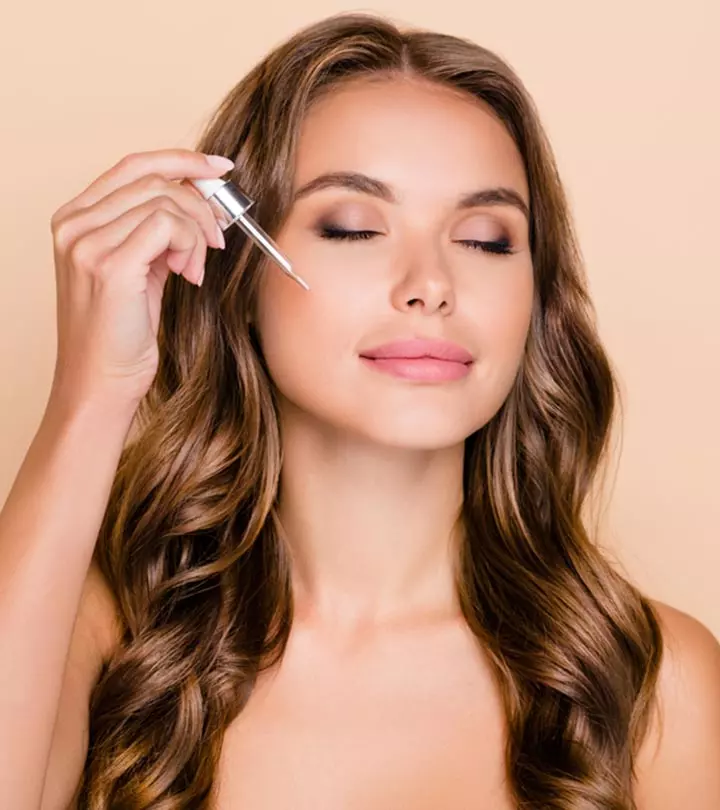
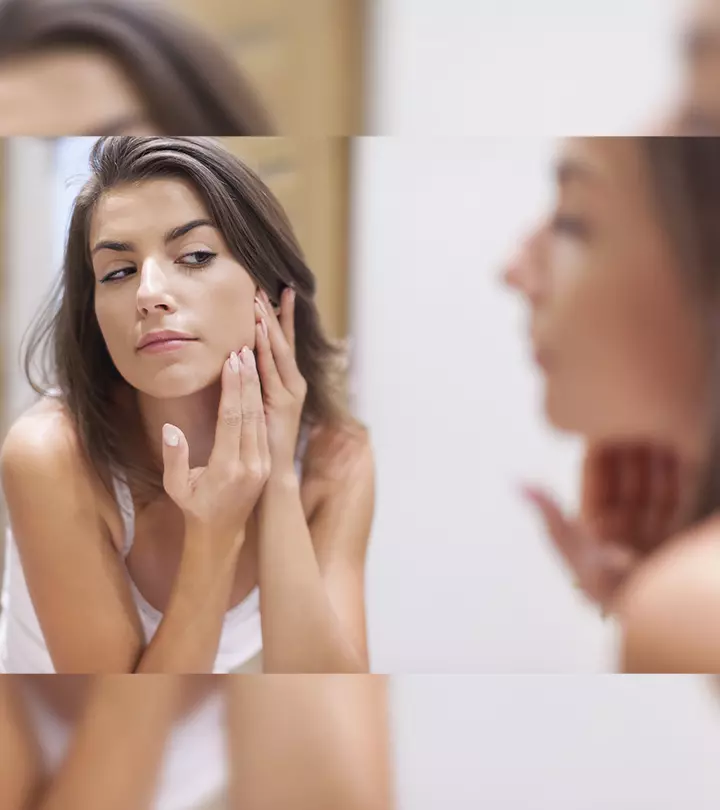
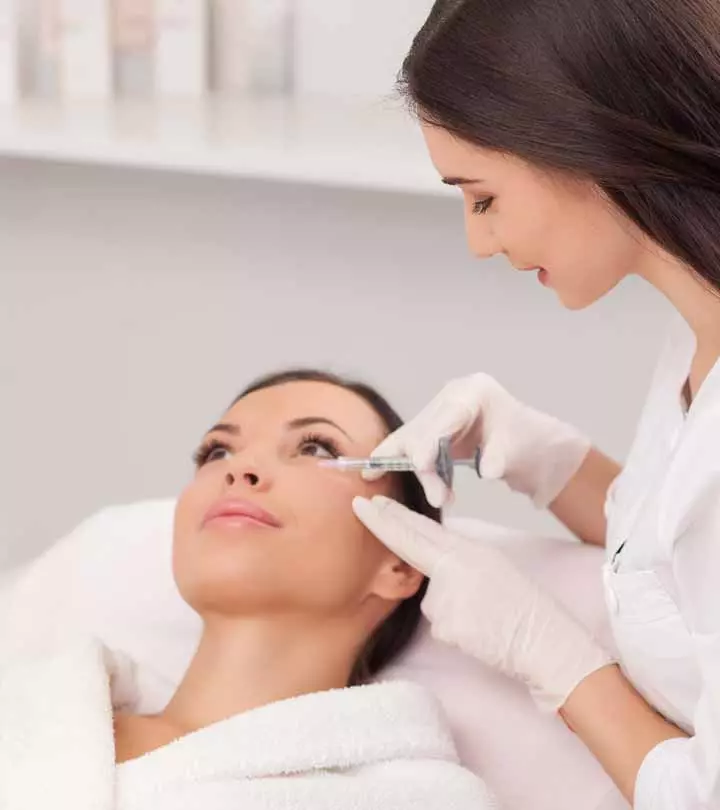
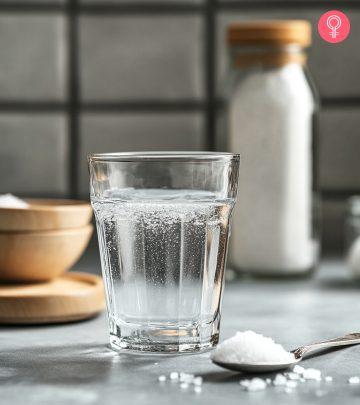
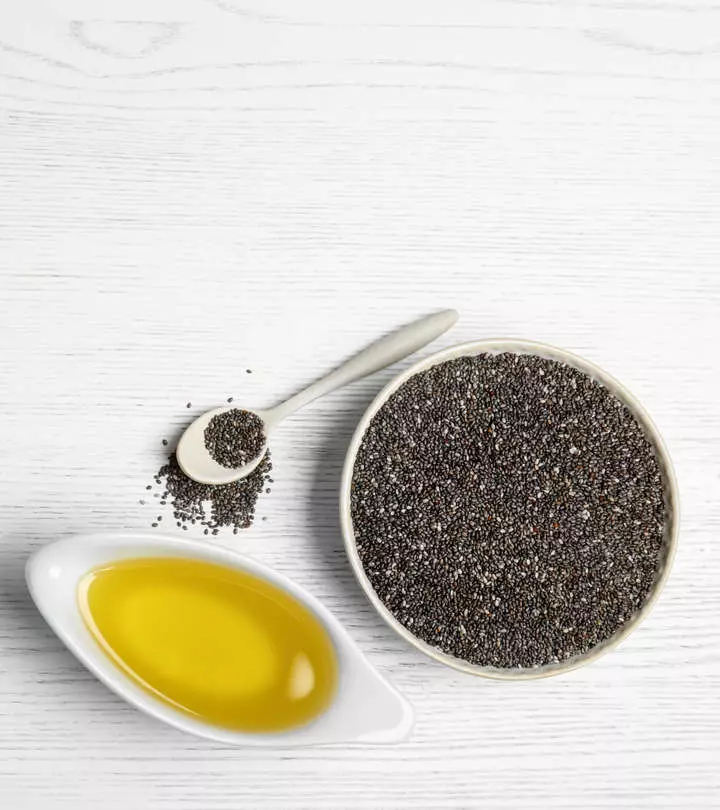
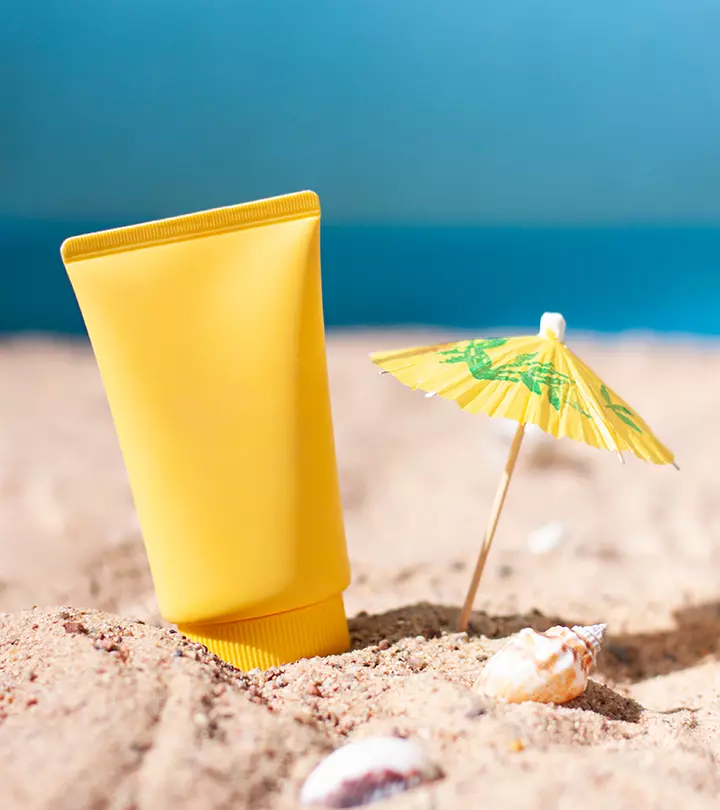
Community Experiences
Join the conversation and become a part of our empowering community! Share your stories, experiences, and insights to connect with other beauty, lifestyle, and health enthusiasts.